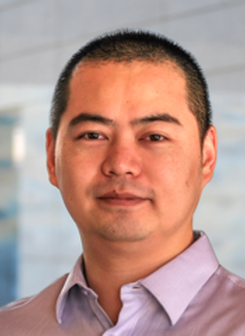
Xiao Dong, a new assistant professor in the Department of Genetics, Cell Biology and Development, recently completed a postdoctoral appointment at the Albert Einstein College of Medicine. He joined the department last spring. His research focuses on finding the mechanisms of how humans age. We recently caught up with Dong to hear more about his research and transition to the University of Minnesota.
Can you provide a brief overview of your research?
My general research works toward discovering causal mechanisms of human aging. Currently, we focus on testing the mutation theory of aging, which focuses on whether accumulation of DNA mutations in normal somatic cells is a causal mechanism to age-related functional decline. We approach this by developing and applying the state-of-the-art single-cell multi-omics technologies and machine learning algorithms.
What drew you to the department?
The Department of Genetics, Cell Biology and Development covers a broad spectrum of research in biological sciences, which extends significantly beyond the field of genetics. Communicating and collaborating with GCD laboratories will help us to better understand the role of genetic alterations in cellular function during aging.
What was it like stepping into your current role during the pandemic?
Although there was less chance of meeting in-person, colleagues in GCD and at the University have been exceptionally helpful and responsive. Their consistent support is essential for me to step into my new role as an assistant professor.
What research efforts and questions do you hope to pursue moving forward?
I hope to discover patterns of mutation accumulation in different cell types during aging and disease progression in humans. I also plan on testing if accumulation of random mutations is sufficient to drive any aging phenotype, as well as if random alterations to the epigenome would accumulate during aging in humans.